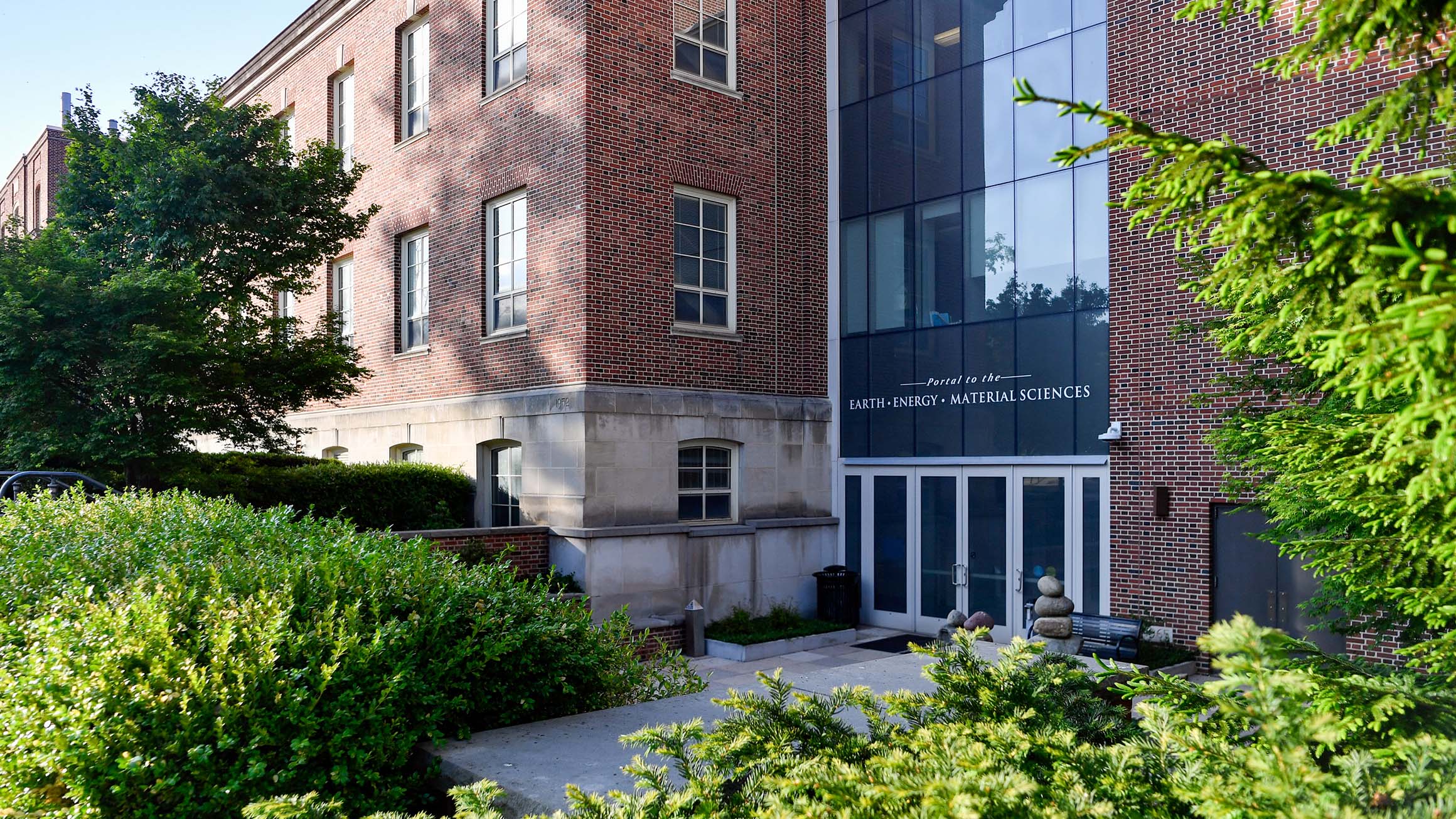UNIVERSITY PARK, Pa. — As climate change continues to cause higher temperatures, rising sea levels, and more, humans will be subjected to a harsher environment and worsening natural disasters.
The ongoing climate crisis signals the need for professionals who want to support the world’s transition to sustainable and renewable energy sources. A master’s degree from Penn State can provide professionals with the specialized education needed for these critical roles.
The Master of Professional Studies in Renewable Energy and Sustainability Systems (RESS) is offered online through a partnership between Penn State World Campus and the John and Willie Leone Family Department of Energy and Mineral Engineering within the Penn State College of Earth and Mineral Sciences.
“Having a career in a field that seeks to address some of the world’s biggest problems, such as clean energy and sustainable development, is not an easy task and one that I felt I required more skill sets,” said Jordyn Hinkle, a current student. “One of the biggest fulfillments I felt I needed prior to entering the field was better analysis, comprehension, and leadership skills, which the RESS program has helped me develop.”
Hinkle graduated with a bachelor's degree in Earth science and policy from the Penn State College of Earth and Mineral Sciences in spring 2020. She said her undergraduate experience sparked her interest in green energy, but she knew she needed to earn a master’s degree before entering the field.
Mark Fedkin, assistant teaching professor and co-lead faculty for the program, said the curriculum addresses the critical need for sustainability in professional spaces by teaching students how to implement sustainable technology, systems, and policies in the public and private sectors.
“The RESS program is not focused on academic research,” said Fedkin. “Rather, we’re trying to address how new technologies are going to be implemented by teaching people how to create sustainable measures and to make energy transitions happen in real life. It's a much more practical dimension.”
For instance, students can gain an understanding of energy science and economics, applications of technology in society, and project and product development. Students can also improve their leadership skills and ability to make decisions in complex situations.
“Most of our students are currently employed and either want to upgrade their skill set to be able to advance in their current position or to a different position, or to address a need that their organization or community has in meeting sustainability goals,” said Erich Schienke, assistant teaching professor and co-lead faculty for the program.
Graduates may go on to work in jobs such as project manager, energy efficiency analyst, energy project manager, environmental risk analyst, renewable energy consultant, community planner, and more.
Schienke said the program does not require students to have specific backgrounds. Rather, the program aims to teach students with diverse experiences how to apply their education anywhere they see an opportunity for sustainability.
Tim Uehling, a 2021 graduate, works for the Omaha Public Power District as the senior director of decommissioning for the Fort Calhoun nuclear power station in Nebraska. He said his goal when enrolling in the RESS program was to bring knowledge on sustainability back to his organization.
Uehling said that opportunity came when he was able to support the Omaha Public Power District in setting a goal to achieve net-zero carbon status by 2050.
“Because of my involvement in the RESS program, I was fortunate to be offered the opportunity to participate in the ongoing study,” said Uehling. “This has been a great way for me to put what I have learned in the RESS program into action.”
The 33-credit curriculum includes 12 credits of required courses that cover the theoretical background of sustainability, the structure and function of energy markets, various energy technology systems, and other relevant topics.
Students can take 12 credits in a track they choose to tailor their education to their individual goals. The Renewable Energy Systems track offers courses related to the management and technical aspects of the energy sector, and the Sustainability Management and Policy track prepares students for applied work in businesses or municipalities.
Students are required to take six credits in electives relevant to sustainability and three credits in a capstone experience, in which students apply their education to a real-world project in renewable energy systems that uses a systems analysis and case-study approach.
For his capstone project, Uehling teamed up with two fellow students to evaluate the potential expansion of solar energy storage systems for fire stations in Puerto Rico. The team partnered with the founder and CEO of Solar Responders, a nonprofit organization, who helped connect them with local stakeholders and guided them through challenges.
“The capstone project was my favorite part of the program,” said Uehling. “Our team was able to provide some new insights and explore some of the ideas Solar Responders had been considering, and ultimately put to good use what we had learned through the program to help advance their worthy cause.”
The capstone course encourages students to work with real-life stakeholders throughout the experience, said Schienke, who developed and teaches the course.
Students can also complete 12-credit certificates through the program.
The Graduate Certificate in Solar Energy prepares students to enter the rapidly growing solar energy sector. The Graduate Certificate in Sustainability Management and Policy prepares students to promote long-term sustainability management in various fields. Students who successfully complete a certificate may apply those credits to their master’s degree if they apply and are accepted.
Hinkle said she plans to graduate in 2021 and wants to pursue a career in the growing field of sustainable or environmental consulting work. She said she’s excited for the opportunities that her master’s degree will open for her.
“I can’t express enough what this program has done for me or how appreciative I am for how it has helped me grow as a student, a professional, and as a person,” said Hinkle. “For me, choosing the RESS program at Penn State World Campus has been one of those defining points in my life that I am so grateful to have made.”
Learn more about the program on the Master of Professional Studies in Renewable Energy and Sustainability Systems website.


